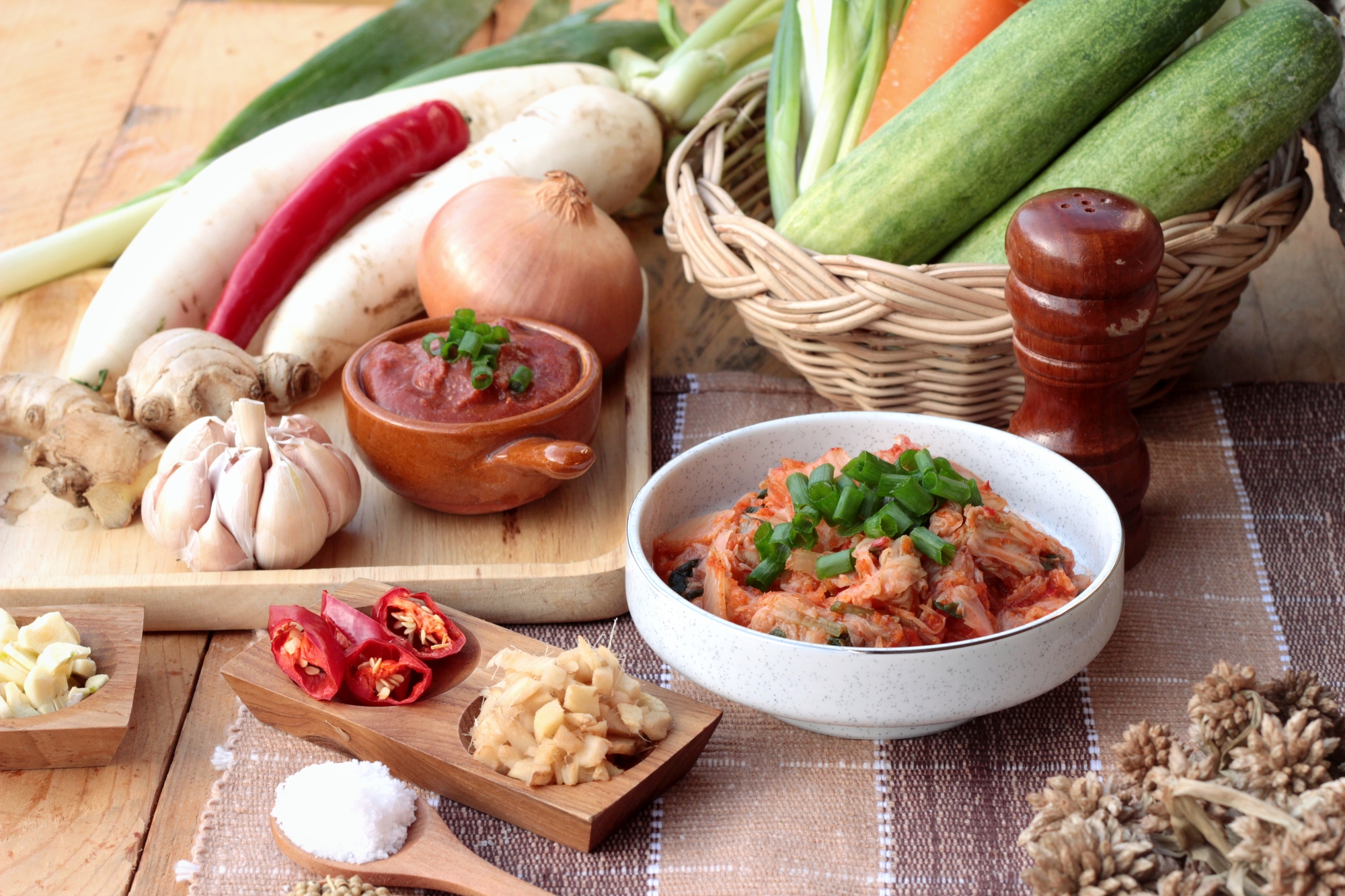The scenario is all too common: we forget to bundle up on an early fall evening out, experience restless sleep as the back-to-school season kicks in, or end up in contact with someone harboring a seemingly mild case of the sniffles. The end result?—we get sick! We often scramble afterwards to fight against an illness that has already taken hold with home remedies and more conscious self-care. But as it turns out, battling with an already weakened immune system after the fact is not always as beneficial as we think. So how can we approach this fall season for better health? Get proactive by protecting the gut.
The Cold Weather and Compromised Immunity Link
Although old wisdom advises that we “bundle up” to avoid getting sick as temperatures begin to drop, cold weather itself isn’t the primary source of these seasonal woes. A bigger culprit is our tendency to spend cooler months ensconced indoors and in closer proximity to one another. If you already anticipate a dreaded cycle of back-to-school colds each year when September rolls around, then you’ve experienced this phenomenon. When kids exchange days of playing in the great outdoors together for months spent in more crowded classrooms, illnesses have far more opportunity to spread.
The change in weather during fall only exacerbates this situation, as cold air we breathe in through our upper airways and noses compromises our immune response to viruses. Our lack of exposure to the protective power of the “sunshine vitamin” (vitamin D) in less sunny environments is yet another reason our bodies’ natural defences may be weakened this time of year.
Why Protect the Gut?
But what is the gut’s role in all of this? While viruses may seem unrelated to our diet, what we choose to ingest has a significant influence on our overall immune response. Around 70 percent of our immune system is found directly in the gut, where many cells are specially designated to release antibodies (proteins that help fight antigens or unwanted substances) throughout their lifecycle. Disruptions to the delicate balance of the gut microbiome’s good and bad bacterias have been linked to the development of autoimmune disorders, and a 2021 study from Harvard even demonstrated how our diet directly impacts the immune system via a gut microbe—proving that “you are what you eat” is more than just a catchy saying.
When it comes to our kids, there’s an additional need to be conscientious about gut health. Besides the immediate benefits during cold and flu seasons, research indicates that the makeup and formation of the microbiome during these formative years can have life-long impacts, even affecting one’s future risk for developing cardiometabolic disease. With so many of our health outcomes riding on the wellness of the gut, when it’s out of balance the resulting ripple effects are undeniable.
Signs of an Imbalance
There are plenty of signs that can point to a gut imbalance, if we know to look for them! Sometimes a tell-tale sign can be found right at the source, with bloating, gas, and other stomach issues causing us daily discomfort. But there are other potentially connected symptoms to be aware of, such as:
- Skin issues
- Sleep troubles
- Moodiness and irritability
- Sugar cravings
- Unintentional weight changes
If we step back to look at all these issues as a whole, rather than in isolation, it’s easy to see just how much of our well-being rests within the gut. And that’s where proactive, protective measures can come to our rescue.
Build Up Immunity…Before You Get Sick
Maybe you’ve seen the PSAs and are seemingly doing it all to bolster your immune system—you’re hitting the hay earlier for more essential beauty sleep, you’ve adjusted your diet to be more balanced, and all hand washing is timed to the tune of “Happy Birthday,” times two. These are all good preventative strategies that shouldn’t be neglected in our search for health and wellness. But despite our best efforts, seasonal colds and flus are likely to still come calling as our kids return to school.

The Probiotic and Synbiotic Advantage
Eating a biodiverse diet is always recommended, and we can often find a variety of gut-supportive foods on grocery store shelves that will work to balance its good-to-bad bacterial ratios. In a perfect world, we could consume optimal amounts of these probiotics (like yogurt, kefir, and fermented veggies) and prebiotics (like onions, garlic, and asparagus) through diet alone. But life gets hectic—especially with kids—and taking a more targeted approach can ensure that we’re meeting our nutritional needs day-to-day for a stronger gut and immune system.
This is why taking a daily probiotic supplement can be so beneficial. These live microorganisms amp up the stores of beneficial bacteria in your gastrointestinal (GI) tract, stave off harmful microbes, and help restore a natural balance when needed, such as after antibiotics have depleted healthy gut flora. Prebiotics are different, as they contain special types of fiber that feed only our “friendly” gut bacteria. When combined together, prebiotics and probiotics work synergistically, becoming a research-backed “power couple” known as synbiotics.

Being intentional about our daily consumption of probiotics or synbiotics can go a long way when it comes to preventing illnesses or just getting back on track to wellness. While more reactive home remedies are a go-to approach for many at the first sign of a throat tickle or upset stomach, overloading our bodies with a single counteractive ingredient—like vitamin C—can actually exacerbate some symptoms, over-stimulate the immune system, and even lead to new troubles! The key is, as always, striking a balance. Having healthy routines and dietary habits (or supplements) in place before we get sick is part of that balance, and our immune systems will only benefit from it.
Power Up with the Friendly Trio
But what should we look for when shopping for our probiotics or synbiotics? Meet The Friendly Trio® from Wakunaga. This clinically-studied blend of three biocompatible human strain probiotics is the foundation for all their formulas—and they’re all uniquely qualified to support the gut microbiome and immunity.
- Lactobacillus Gasseri produces antimicrobial substances and boosts antibodies that protect against flu viruses
- Bifidobacterium Bifidum bolsters our GI immunity
- Bifidobacterium Longum boosts immunity and helps fight antibiotic-resistant bacteria
Consider Kyo-Dophilus Kids Probiotic to promote your kids’ healthy immune function this fall season, and throughout the year. It has the added benefits of relieving some digestive discomforts and maintaining bowel regularity, so you can expect less tummy troubles. Bonus: it’s easy to take, and the taste has kids’ seal of approval.
When it comes to protecting your own gut health, look no further than Kyo-Dophilus Pro+ Synbiotics. The addition of the BioEcolians® prebiotic in this tasty, chewable tablet encourages Lactobacilli and Bifidobacteria species to flourish by feeding the good bacteria and maintaining bacterial balance. Adults are far from immune to intestinal distress, so you can also rest assured with improved bowel regularity and relief from gas and bloating blues.

Not all illnesses can be kept at bay, but with the added support of probiotics and synbiotics, we can help the whole family find balance in the gut, and build better immunity.
Learn more about the fascinating world of probiotics by visiting https://probiotics.com/.

Since its establishment in 1972, Wakunaga of America Co., LTD has played a unique role in promoting consumer health worldwide through the research, development, manufacturing and marketing of high quality medicinal herbs and dietary supplements. The corporate philosophy of Wakunaga centers on a commitment to research and a mission to serve public health. This mission is accomplished by providing products of the highest quality, which are supported by science. Brands include Kyolic AGE, Kyo-Dophilus Probiotics and Kyo-Green Superfoods.










